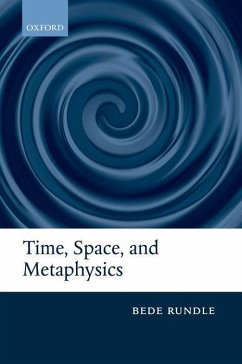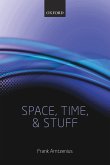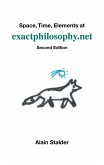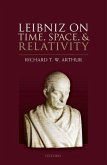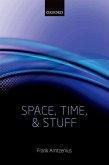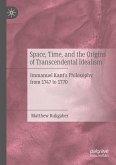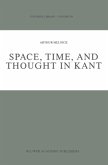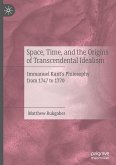Bede Rundle presents a philosophical investigation of the nature and reality of time and space, by means of analysis of the concepts involved. He discusses anti-realism, time travel, temporal parts, geometry, convention, and infinity, and more general issues concerning identity, objectivity, causation, facts, and verifiability.
Time, Space, and Metaphysics engages with major philosophical questions concerning time and space, a framework for the investigation being provided by the debate between the absolutists and the relationists, so between Newton and Leibniz, and their followers. The investigation brings to the fore questions of the nature and reality of time and space, and leads on to more recent debates, such as those relating to anti-realism, time travel, temporal parts, geometry, convention, and the infinitude of time and space. These in turn raise more general issues, issues involving such concepts as those of identity, objectivity, causation, facts, and verifiability. Their examination falls within metaphysics, thought of as the investigation and analysis of fundamental philosophical concepts, but there is also metaphysics of a more contentious character, where the subject-matter is provided by propositions which transcend what can be known either through experience or by pure reasoning. In this connection, a central aim is to show how, without dismissing them as nonsensical, we may arrive at a fruitful interpretation of such propositions.
Time, Space, and Metaphysics engages with major philosophical questions concerning time and space, a framework for the investigation being provided by the debate between the absolutists and the relationists, so between Newton and Leibniz, and their followers. The investigation brings to the fore questions of the nature and reality of time and space, and leads on to more recent debates, such as those relating to anti-realism, time travel, temporal parts, geometry, convention, and the infinitude of time and space. These in turn raise more general issues, issues involving such concepts as those of identity, objectivity, causation, facts, and verifiability. Their examination falls within metaphysics, thought of as the investigation and analysis of fundamental philosophical concepts, but there is also metaphysics of a more contentious character, where the subject-matter is provided by propositions which transcend what can be known either through experience or by pure reasoning. In this connection, a central aim is to show how, without dismissing them as nonsensical, we may arrive at a fruitful interpretation of such propositions.

